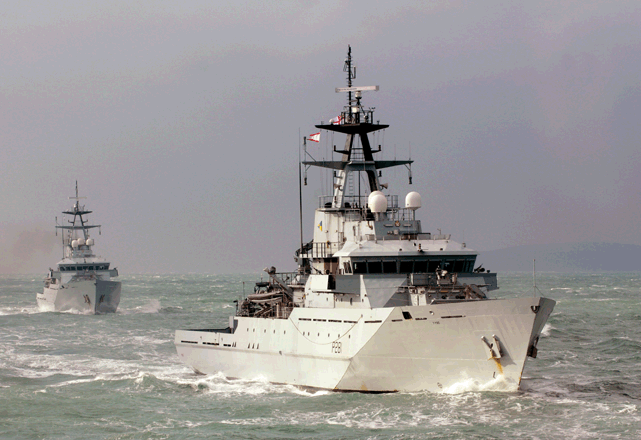26 September 2014

Naval authorities will be able to use data provided by the system to narrow their search for pirate fishing vessels.
Maritime and naval authorities will find it much easier to protect international fisheries with help from a new satellite-based system to track illegal fishing activities. It will be used to capture and analyse shipping data, and combine these with vessel information to detect and prosecute unlawful fishing.
The system has been developed by the Satellite Applications Catapult, the Pew Charitable Trusts non-governmental organisation, and satellite data services company exactEarth Europe.
According to Tony Long, director of Pew’s Ending Illegal Fishing Project, illegal and unreported fishing accounts for up to 26 million metric tons of fish worth up to $23.5bn a year. “Every time you buy seafood there is a one-in-five chance that the fish was caught outside the law,” he claims.
Many governments use satellite-based technology as part of their fishing vessel monitoring policies. Vessel monitoring systems (VMS) provide location information for fishing boats, and many also carry an automatic identification system (AIS) which is designed for safety at sea. The Catapult product will merge VMS and AIS data with other information. By analysing vessel tracks and overlaying them on protected marine areas, vessel history and licence details, fisheries experts can spot irregular and potentially illegal activity. This will pinpoint the location of suspect ships, and show their name, identification number, fishing license details, history, and more.
“As the product evolves it will become better on its own at recognising certain types of fishing activity – for example, long-line fishing versus seining or trawling,” says Long. “But the human element, i.e. informed analytic expertise which at some point must be coupled with a physical inspection of the vessel, will remain necessary to prove illegal activity.”
Neither Pew nor the Satellite Applications Catapult will feed information directly to the naval, police or fishing authorities. But the organisations will be able to use it to narrow their search for pirate fishing and focus their resources on suspect vessels.
The Satellite Applications Catapult says the partnership will also support the Global Ocean Commission Mission Ocean initiative to save and restore ocean health.








